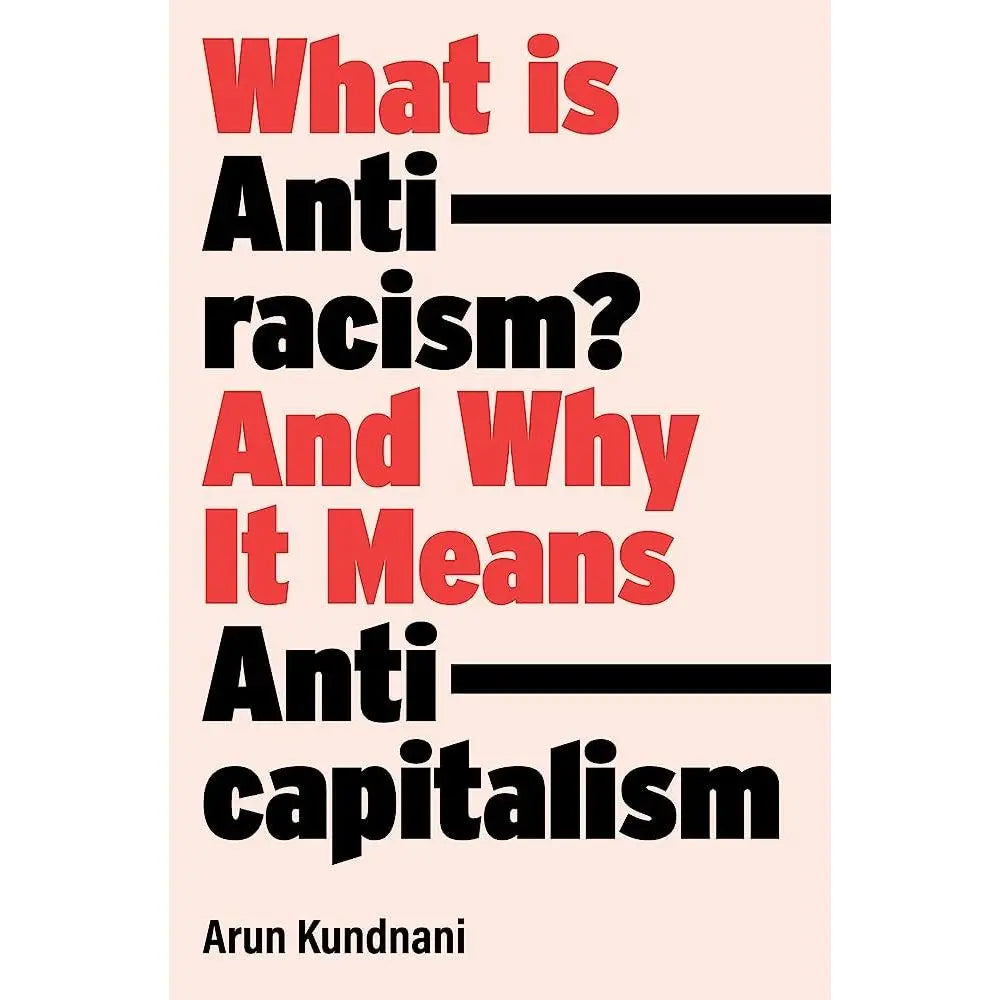EnglishBookHouse
What is Anti racism?And Why It means Anti Capitalism
What is Anti racism?And Why It means Anti Capitalism
Couldn't load pickup availability
What is Anti Racism? And Why It Means Anti Capitalism
Anti Racism This scintillating intellectual and political history provides a new understanding of racism, and a better way to fight it Liberals have been arguing for nearly a century that racism is fundamentally an individual problem of extremist beliefs. Responding to Nazism, thinkers like gay rights pioneer Magnus Hirschfeld and anthropologist Ruth Benedict called for teaching people, especially poor people, to be less prejudiced. Here lies the origin of today's liberal antiracism, from diversity training to Hollywood activism. Meanwhile, a more radical antiracism flowered in the Third World. Anticolonial revolutionaries traced racism to the broad economic and political structures of modernity. Thinkers like C.L.R. James, Claudia Jones, and Frantz Fanon showed how racism was connected to colonialism and capitalism, a perspective adopted even by Martin Luther King. Today, liberal antiracism has proven powerless against structural oppression. As Arun Kundnani demonstrates, white liberals can heroically confront their own whiteness all they want, yet these structures remain.
This deeply researched and swift-moving narrative history tells the story of the two antiracisms and their fates. As neoliberalism reordered the world in the last decades of the twentieth century, the case became clear: fighting racism means striking at its capitalist roots.
Defining Anti Racism
Anti Racism is a set of beliefs and actions aimed at opposing racism and promoting racial equity. It goes beyond simply not being racist; it requires active efforts to confront and dismantle systemic racism. Anti Racism involves recognizing the pervasive influences of racism in society and working toward creating a more inclusive environment for all racial groups. This means advocating for policies and practices that foster equality and justice.
The Connection to Capitalism
Many people argue that Anti Racism is closely linked to Anti Capitalism because both systems can perpetuate inequality. Capitalism often thrives on exploitation, which disproportionately affects marginalized communities. So, to fight against racism, we must also address the economic structures that contribute to this discrimination. Anti Capitalism aims to create a system where resources are shared more equitably, thus benefiting all communities, especially those that are most impacted by racism.
Why Anti Racism Requires Systemic Change
Anti Racism requires systemic change because racism is embedded in societal structures, including education, healthcare, and the economy. Simply promoting individual tolerance is not enough; we must work together to dismantle these structures. This is why Anti Racism aligns with Anti Capitalism. By challenging the capitalist systems that sustain inequality, we can achieve true equity and justice for all. In this way, Anti Racism becomes not just about equality in racial terms but about a fairer economic system.


